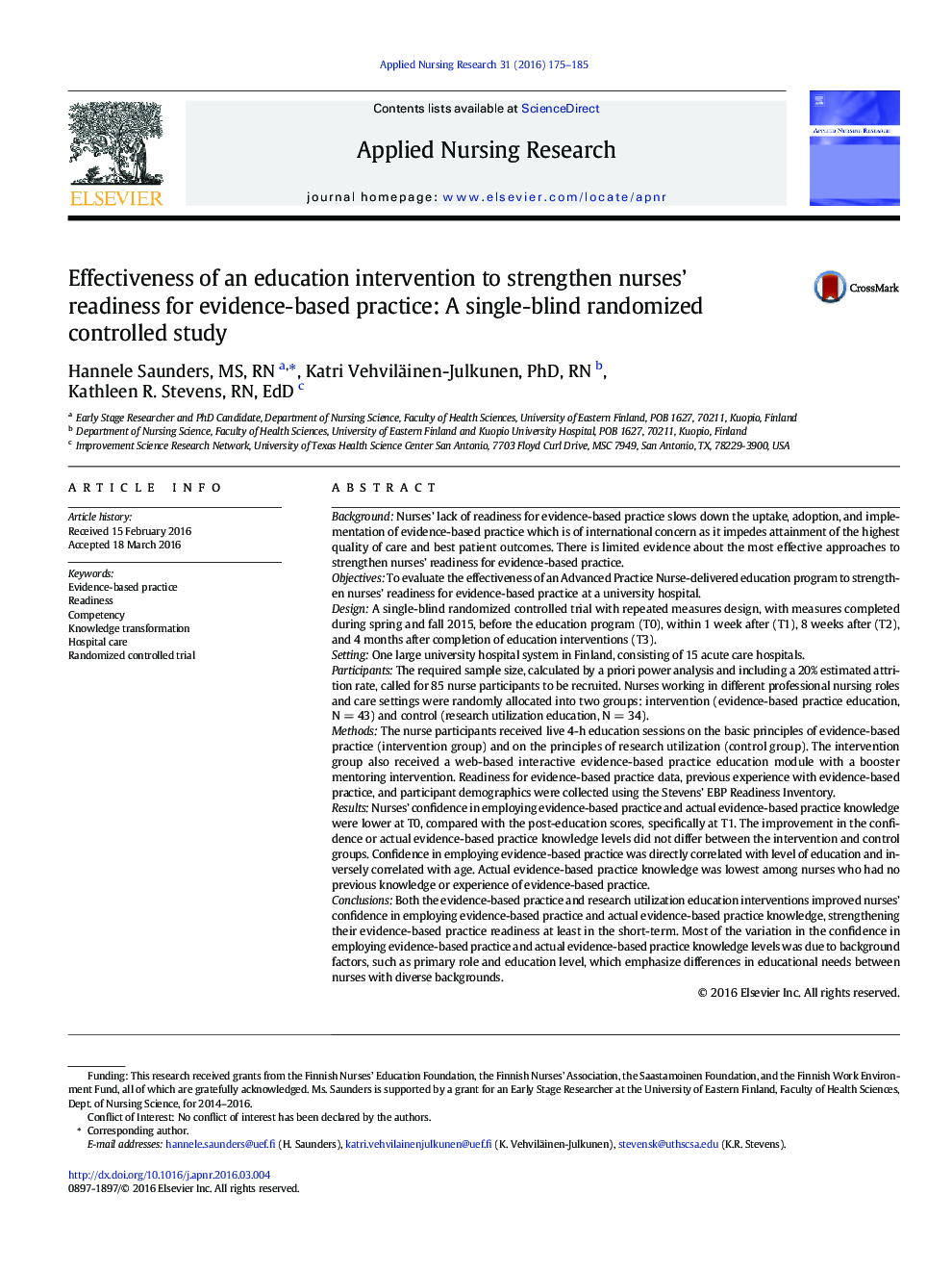| کد مقاله | کد نشریه | سال انتشار | مقاله انگلیسی | نسخه تمام متن |
|---|---|---|---|---|
| 2644964 | 1563665 | 2016 | 11 صفحه PDF | دانلود رایگان |
BackgroundNurses’ lack of readiness for evidence-based practice slows down the uptake, adoption, and implementation of evidence-based practice which is of international concern as it impedes attainment of the highest quality of care and best patient outcomes. There is limited evidence about the most effective approaches to strengthen nurses’ readiness for evidence-based practice.ObjectivesTo evaluate the effectiveness of an Advanced Practice Nurse-delivered education program to strengthen nurses’ readiness for evidence-based practice at a university hospital.DesignA single-blind randomized controlled trial with repeated measures design, with measures completed during spring and fall 2015, before the education program (T0), within 1 week after (T1), 8 weeks after (T2), and 4 months after completion of education interventions (T3).SettingOne large university hospital system in Finland, consisting of 15 acute care hospitals.ParticipantsThe required sample size, calculated by a priori power analysis and including a 20% estimated attrition rate, called for 85 nurse participants to be recruited. Nurses working in different professional nursing roles and care settings were randomly allocated into two groups: intervention (evidence-based practice education, N = 43) and control (research utilization education, N = 34).MethodsThe nurse participants received live 4-h education sessions on the basic principles of evidence-based practice (intervention group) and on the principles of research utilization (control group). The intervention group also received a web-based interactive evidence-based practice education module with a booster mentoring intervention. Readiness for evidence-based practice data, previous experience with evidence-based practice, and participant demographics were collected using the Stevens’ EBP Readiness Inventory.ResultsNurses’ confidence in employing evidence-based practice and actual evidence-based practice knowledge were lower at T0, compared with the post-education scores, specifically at T1. The improvement in the confidence or actual evidence-based practice knowledge levels did not differ between the intervention and control groups. Confidence in employing evidence-based practice was directly correlated with level of education and inversely correlated with age. Actual evidence-based practice knowledge was lowest among nurses who had no previous knowledge or experience of evidence-based practice.ConclusionsBoth the evidence-based practice and research utilization education interventions improved nurses’ confidence in employing evidence-based practice and actual evidence-based practice knowledge, strengthening their evidence-based practice readiness at least in the short-term. Most of the variation in the confidence in employing evidence-based practice and actual evidence-based practice knowledge levels was due to background factors, such as primary role and education level, which emphasize differences in educational needs between nurses with diverse backgrounds.
Journal: Applied Nursing Research - Volume 31, August 2016, Pages 175–185
